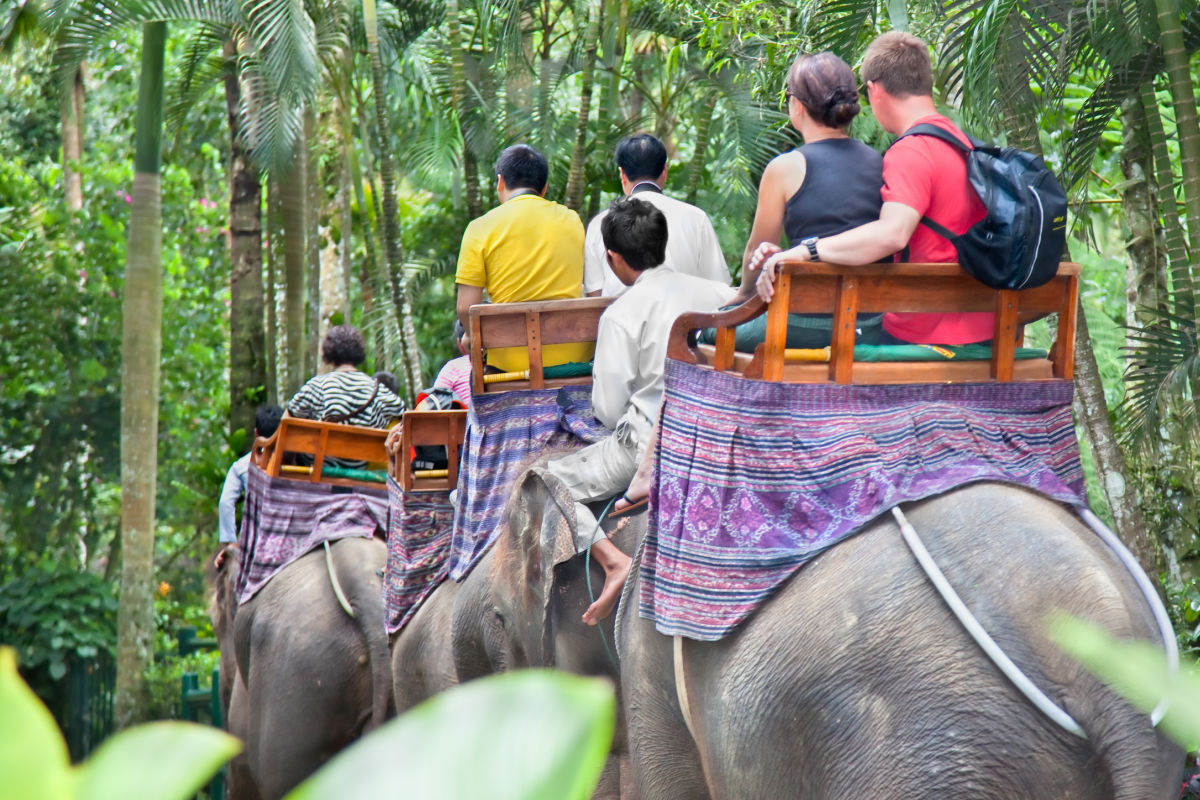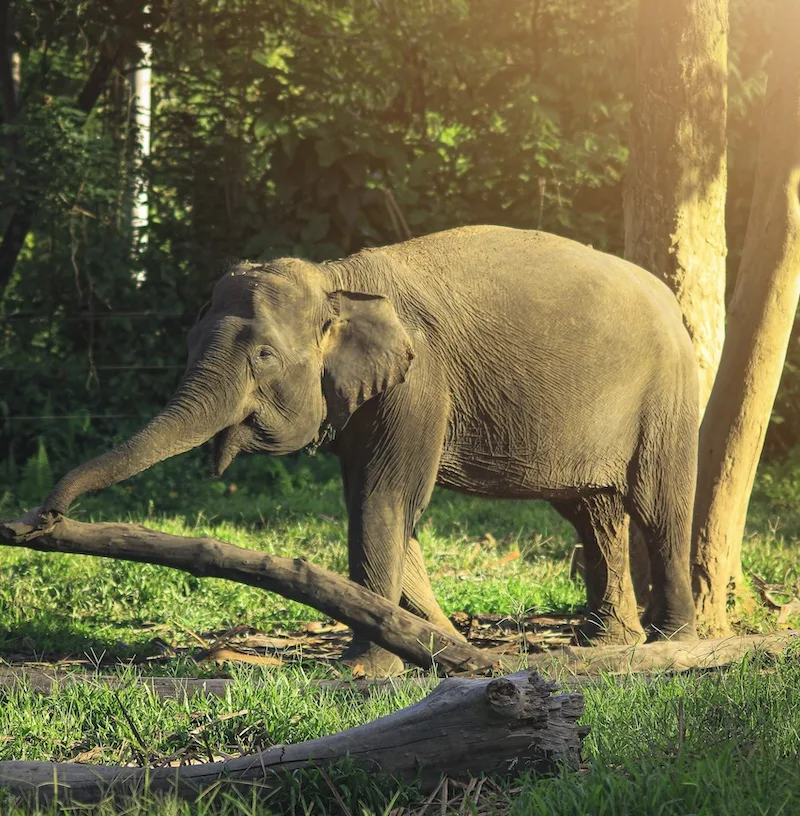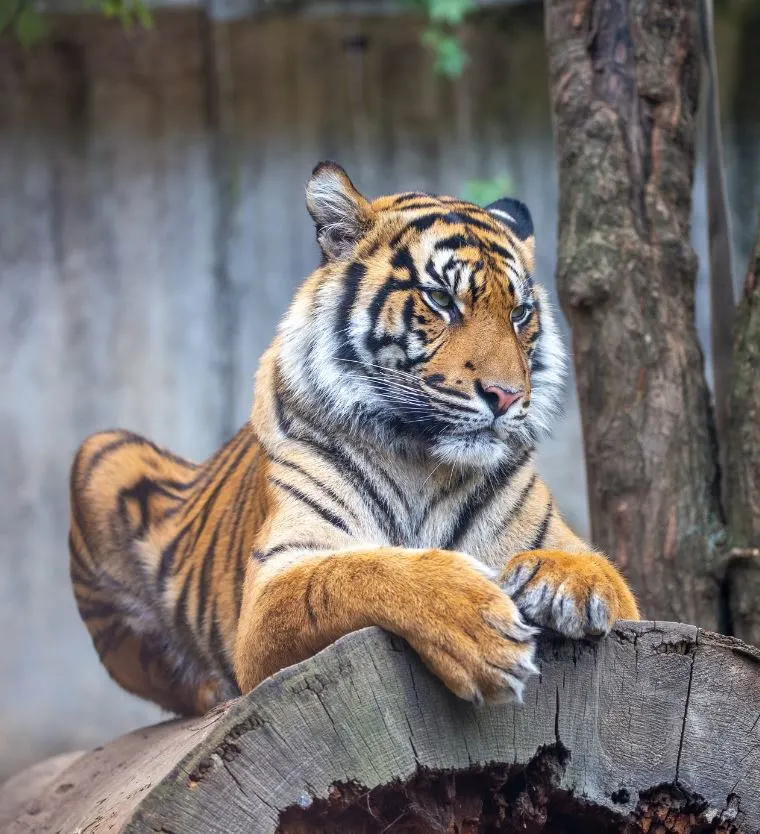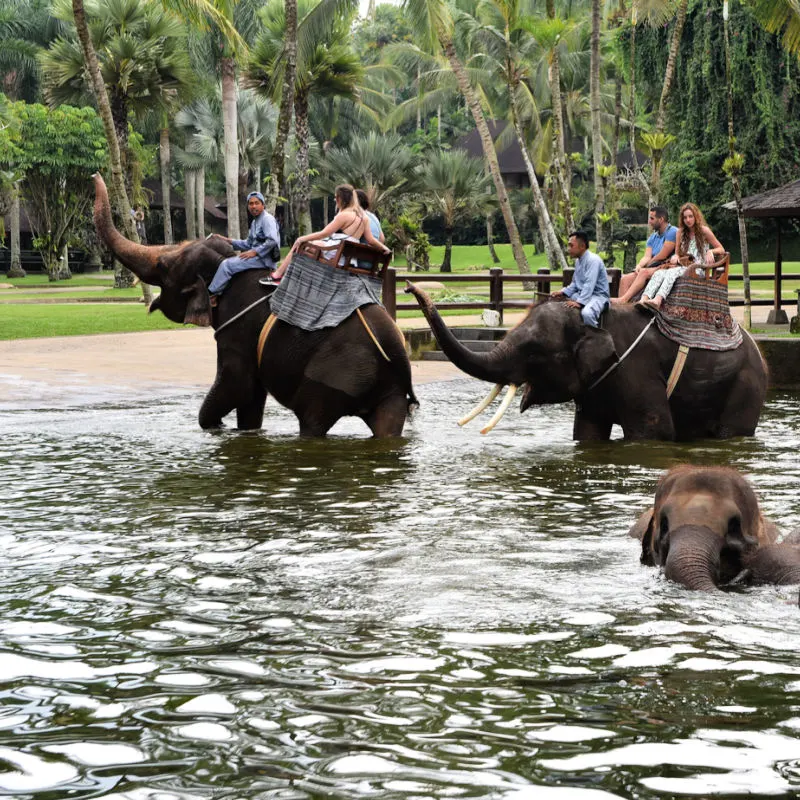An elephant keeper at Bali Safari and Marine Park was killed by his elephant on Tuesday, 17th September.
As police investigate the matter and staff and the mahout’s loved ones come to terms with the tragic loss, the incident raises questions over whether or not tourists should interact with wildlife as part of close encounter experiences across the island.

27-year-old elephant keeper, also known as a mahout, Komang Resi Yasa, died after sustaining multiple injuries when he was attacked by his bull elephant at 9 am on Tuesday, 17th September.
According to witness reports shared with the media, the elephant is said to have turned on Komang unexpectedly and without provocation.
It is not clear whether Yasa was riding the elephant when the attack took place or whether he was leading him on foot.
Yasa is reported to have tried to run away from the bull elephant as two other staff members scrambled to stop the attack, using bullhooks to bring him under control and moving other female elephants in his path to corral him away from an already injured Yasa.
In the immediate aftermath of the attack, Yasa was rushed to hospital but died of his extensive injuries en route. The bull elephant was sedated as quickly as possible by veterinarians and staff from the zoo’s conservation team.
Speaking following the incident, Gianyar Police Chief AKBP Umar confirmed the events and confirmed that Komang’s family has since traveled from South Sumatra. Komang hailed from Lampung, home to the biggest government-run elephant conservation department and training school in Indonesia.
AKBP Umar told reporters, “We have examined witnesses and checked CCTV. I’m sure there are [many] because it’s a tourist attraction; the victim’s family from Lampung has come.”
In a written statement, the Head of Marketing for Taman Safari Indonesia Group, Alexander Zulkarnain, explained that a ‘workplace accident’ had resulted in the death of a staff member. Taman Safari Indonesia said, “We express our deepest condolences to the family of the deceased and all those who knew him. Bali Safari Park will continue to provide support for the bereaved families during this period of mourning.”
The statement continued, “Our mahouts have undergone the necessary training and work in accordance with the established standard operating procedures, including in their duties of interacting with elephants. We also ensure that all the animals in the Safari Park environment are safe and healthy.”
Yasa has been praised for his dedication to his role and compassionate care of elephants, he has been described as a genuine elephant lover.

The tragedy is not without its wider consequences. Undercover investigations and studies that have taken place at Bali’s leading and even lesser-known wildlife tourism attractions have consistently found that there are no ethical wildlife tourism venues in the province.
Findings published by the International animal welfare organization World Animal Protection found that of 26 animal tourism venues in Bali and Lombok visited in 2023, “nearly all did not meet the most basic needs of the animals held captive.”
These venues were collectively responsible for the care of over 1,300 animals, including critically endangered Sumatran elephants, orangutans, tigers, and pangolins. Elephant riding, feeding, close interactions with animals, and animal entertainment shows and performances have all been noted to cause considerable harm to the animals in question, in addition to poor overall welfare conditions.

World Animal Protection is consistently assessing animal and wildlife tourism venues across Asia and releases an updated report every few years. An updated set of findings were published in 2023, following an in-depth assessment of venues in 2017.
World Animal Protection wrote of Bali that “Overall, there was no meaningful or significant improvement in the recorded and observed welfare conditions for wildlife in entertainment in Bali and Lombok in just over five years since the last report. Our investigation showed that wild animals are still predominantly suffering from inadequate conditions.”

The assessments were carried out at Bali’s most popular animal tourism venues, including Bali Safari, Marine Park, and Mason Elephant Park.
Remove All Ads & Unlock All Articles… Sign up for The Bali Sun Premium

Plan Your Bali Holiday:
Book The Best English Speaking Drivers For Airport Transfers & Tours
Choose From Thousands of Bali Hotels, Resorts, and Hostels with Free Cancellation On Most Properties
Book Cheap Flights To Bali
Don’t Forget Travel Insurance That Covers Medical Expenses In Bali
For the latest Bali News & Debate Join our Facebook Community
SUBSCRIBE TO NEW POSTS
Enter your email address to subscribe to The Bali Sun’s latest breaking news, straight to your inbox.
Discover more from The Bali Sun
Subscribe to get the latest posts sent to your email.

ellen
Thursday 26th of September 2024
Wildlife should not be ridden or kept for the entertainment of tourists
Col
Sunday 29th of September 2024
@Tomy, Idiot
Exp
Sunday 29th of September 2024
@Tomy, Or they could just stop destroying the habitat of the wildlife.
Tomy
Saturday 28th of September 2024
@ellen, that's how they get money to preserve wildlives
Rod Wilkinson
Thursday 26th of September 2024
How is treating animals cruelly,considered ok. Forcing them to things that are un natural to them.Are they even native to Indonesia? Don’t get me started on the dolphin business at Lovina beach,more cruelty. Ban it all,
Tomy
Saturday 28th of September 2024
@Rod Wilkinson, dolphines in lovina aren't tamed. They are wild ones.
Tomy
Saturday 28th of September 2024
@Rod Wilkinson,